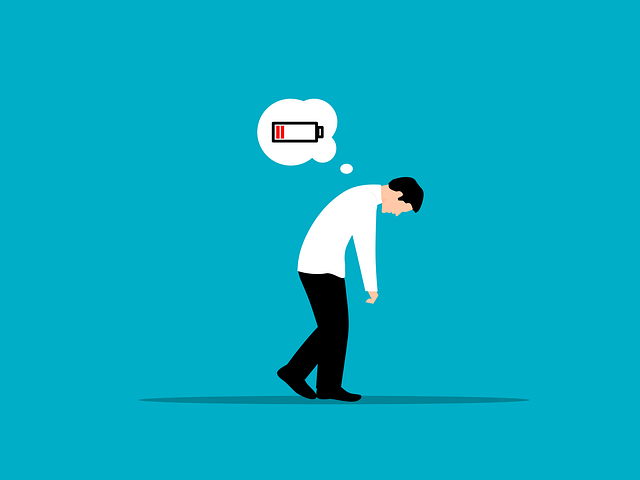Burnout is often spoken of as a medical condition — something to be diagnosed, treated, and eventually recovered from. But for those who are living it, the reality is far more complex. Burnout doesn’t just drain your energy — it slowly unravels the threads of your identity, relationships, confidence, and sense of purpose.
It’s not just about being tired. It’s about waking up with dread, feeling disconnected from the people you love, doubting your worth, and questioning whether you’ll ever feel like yourself again. It touches every part of life — from your ability to think clearly to your role as a parent, partner, or professional.
Burnout isn’t a single problem with a single solution. It’s a cascade of challenges — emotional, social, professional, and existential — that can overwhelm even the strongest individuals. Recognizing this complexity is the first step toward compassionate and meaningful recovery.
Below is a comprehensive look at the real-life challenges people face when going through burnout. You may recognize yourself in many of them — or understand better what someone close to you is going through.
🔄 1. Recognition and Acceptance of Burnout
- Realizing that what you’re experiencing is not normal fatigue.
- Accepting that you can no longer function as before.
- Overcoming personal denial (“I just need to push through,” “It’s not that bad”).
- Coping with others’ perceptions (judgment, misunderstanding).
- Guilt about not being strong enough or feeling “weak”.
- Fear of putting a name to what’s happening (burnout, depression, etc.).
🩺 2. Accessing Medical and Psychological Support
- Finding a compassionate, competent general practitioner.
- Changing doctors if necessary (which can feel like a defeat).
- Getting and accepting a medical leave from work.
- Finding a psychologist or psychiatrist (availability, affordability).
- Dealing with long waiting times for care.
- Navigating administrative systems (insurance, health coverage, etc.).
- Understanding the different options: therapy, medication, coaching, etc.
- Managing the financial burden of treatment or therapy.
👨👩👧👦 3. Personal and Family Relationships
- Explaining your state to your partner, children, family, friends.
- Feeling guilty toward loved ones.
- Feeling misunderstood or judged by others (“You have a good job, why complain?”).
- Risk of social withdrawal and isolation.
- Relationship strain or breakdown with spouse/partner.
- Difficulty caring for children or handling family tasks.
- Loss of libido or difficulty maintaining intimacy.
- Feeling like a burden to others.
🧠 4. Cognitive and Emotional Impairment
- Trouble with memory and concentration.
- Emotional hypersensitivity (crying easily, irritability).
- Persistent anxiety, racing or intrusive thoughts.
- Loss of self-esteem.
- Inability to make even basic decisions.
- Feeling empty, hollow, or emotionally numb.
- Dark thoughts or even suicidal ideation.
💼 5. Professional Life
- Separation from work (sick leave, dismissal, resignation).
- Risk of serious errors at work due to exhaustion.
- Fear of losing your job or never being able to work again.
- Conflicts with managers or colleagues.
- Toxic work environment or harassment, sometimes unrecognized.
- Lack of recognition or support at work.
- Anxiety about returning to work.
- Existential questioning of your career path.
- Pressure to consider a career change or retraining.
- Managing financial insecurity during medical leave.
- Dealing with administrative duties (HR, insurance, disability paperwork).
⏳ 6. Daily Life and Practical Challenges
- Difficulty performing basic tasks (getting up, showering, cooking).
- No energy for social activities or hobbies.
- Need to restructure your daily routine entirely.
- Dealing with paperwork and financial obligations.
- Feeling like nothing is under control anymore.
- Fear of boredom or emptiness during time off.
💔 7. Identity and Core Values
- Existential crisis: “Who am I without my job?”
- Loss of meaning or purpose in life.
- Disconnect between personal values and work culture.
- Feeling broken, permanently changed.
- Losing trust in institutions (workplace, healthcare system, etc.).
🧩 8. Recovery and Rebuilding Process
- Understanding that recovery takes time.
- Accepting the possibility of setbacks or relapses.
- Finding a healthy rhythm (neither too fast nor too slow).
- Planning for a return to work or career redirection.
- Reconnecting with pleasure, rest, and personal interests.
- Learning to set healthy boundaries.
- Rebuilding physical health (sleep, nutrition, gentle activity).
- Considering major life changes (moving, breaking up, career change).

